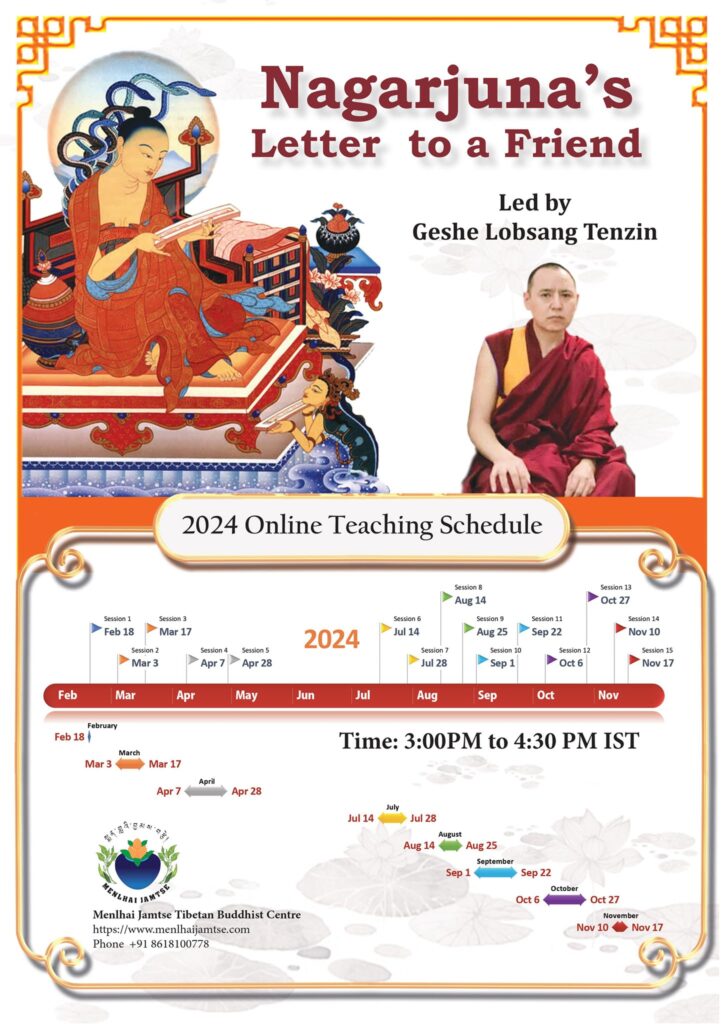Geshe Lobsang Tenzin conducted teachings on Nāgārjuna’s Letter to a Friend through 15 online sessions held from February to November 2024. During these sessions, Geshe-la provided profound explanations and practical guidance on how to integrate the teachings and key messages into practice, applying what we have learned in our daily lives.
Nagarjuna’s letter to a friend
Nāgārjuna’s Letter to a Friend (Suhrillekha) is a short but profound text written by the renowned Indian Buddhist philosopher Nāgārjuna.
It is addressed to King Gautamiputra (also known as a friend in the text) and serves as a guide to living a virtuous and meaningful life in alignment with the principles of Buddhism. The letter is a poetic composition that distills complex Buddhist teachings into simple, practical advice suitable for both laypeople and rulers.
Content and Structure
The Letter to a Friend contains about 123 verses, divided into themes that address various aspects of ethical conduct, meditation, wisdom, and compassion. The advice includes the importance of avoiding harmful actions, accumulating merit through virtuous deeds, and cultivating wisdom to understand the nature of reality.
Key themes include:
1. Ethical Conduct: Emphasizing the importance of refraining from negative actions such as killing, stealing, and lying, while engaging in virtuous activities that benefit others.
2. Mindfulness and Meditation: Encouraging practices that calm the mind and foster insight into the impermanent and interdependent nature of phenomena.
3. Compassion and Bodhicitta: Highlighting the centrality of compassion and the aspiration to achieve enlightenment for the benefit of all sentient beings.
4. Wisdom and Emptiness: Providing insights into the Madhyamaka philosophy, particularly the concept of śūnyatā (emptiness), which explains the ultimate nature of reality as free from inherent existence.
Practical Advice
The text offers practical guidance for daily life, making it relatable and accessible. For instance, it advises rulers to govern with fairness and compassion, and it teaches individuals how to accumulate merit, purify negative karma, and approach death without fear.
Relevance in Modern Times
The Letter to a Friend is often studied in both monastic and lay communities as an introductory text to Buddhist philosophy. Its timeless wisdom provides insights into leading a meaningful life while navigating the complexities of human existence.





